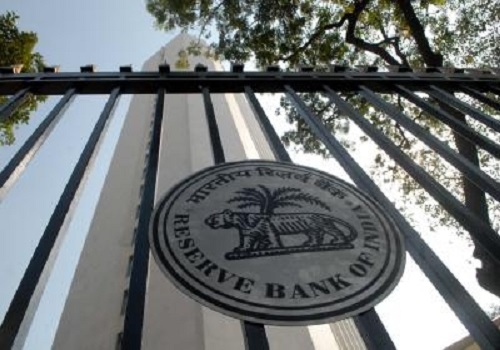RBI sucks out over Rs 1 trillion liquidity, banks to be affected

The Reserve Bank of India's (RBI) Monetary Policy Committee (MPC) decision suck out over Rs one trillion from the system which will result in loss of income for the banks and hardening of the money market, said experts.
Post this announcement, Bank Nifty slipped into weakness.
The MPC at its meeting decided that all scheduled banks should maintain an incremental cash reserve ratio (I-CRR) of 10 per cent on the increase in their net demand and time liabilities (NDTL) between May 19, 2023 and July 28, 2023, said RBI Governor Shaktikanta Das.
According to Das, the measure will take out over Rs one trillion from the system.
Experts also give a figure of about Rs 1.3 trillion.
The CRR is the percentage of deposits that a bank should have in cash to operate risk free. This amount is kept with the RBI.
Post MPC’s decision, the effective CRR is expected to be 14.5 per cent as the current CRR is 4.5 per cent.
“Overall, this would also lead to some interest loss for banks, as banks were parking the short term liquidity into STPL (short term personal loans) and money markets, instead of parking with RBI in VRRR (variable rate reserve rep), which also helped in some softening of CP/CD (commercial paper/certificate of deposit) rates,” said Madhavi Arora, Lead Economist, Emkay Global Financial Services.
According to Arora, the immediate impact of I-CRR will be mild hardening of money market rates for borrowers. including NBFCs/corporates, while banks will suffer a slight impact on the net interest margin, say 3-4 basis points depending on the instruments where they were parking the money (assuming 14.5 per cent effective CRR).
She said public sector banks benefitted more than others from the liquidity glut due to Rs 2,000 notes withdrawal, while others toiled to get deposits by increasing rates.
“Overall, the incremental CRR was unexpected and a reduction in liquidity surplus represents monetary tightening. We expect no further hikes in interest rates in India and also believe that actual inflation in 3Q could be lower than RBI forecasts,” Arora added.
Terming the I-CRR as a temporary measure to manage the liquidity overhang Das said the I-CRR will be reviewed on September 8, 2023 or earlier with a view to returning the impounded funds to the banking system ahead of the festival season.
“Post this announcement (I-CRR), Bank Nifty slipped into weakness as this announcement is negative for banks. Higher forecast of inflation also doused hopes of an early beginning of rate cut impacting bank stocks,” Dhiraj Relli, MD & CEO, HDFC Securities said.
Banks may not help Nifty to continue to rise and focus could shift to other sectors in the near term, Relli said.
Madan Sabnavis, Chief Economist at the Bank of Baroda, told IANS: “The introduction of an incremental cash reserve ratio though on a temporary basis, will impound resources of banks and have an upward impact on market rates. While there will still be surpluses in the market, the concept of impounding of resources will exert upward pressure on sentiment and hence interest rates.”
“We can assume that this will be reversed before the festival/busy season as the RBI could have gone in for open market operation (OMO) to permanently take out liquidity from the system,” he added.




















